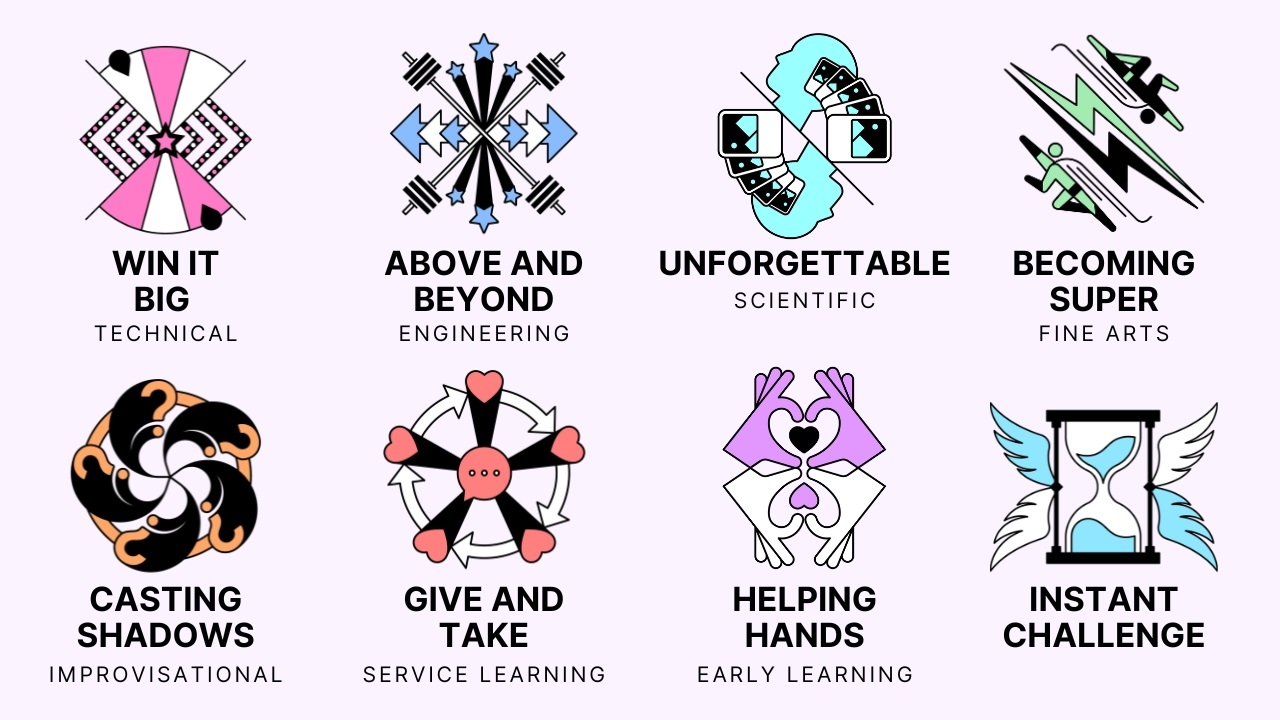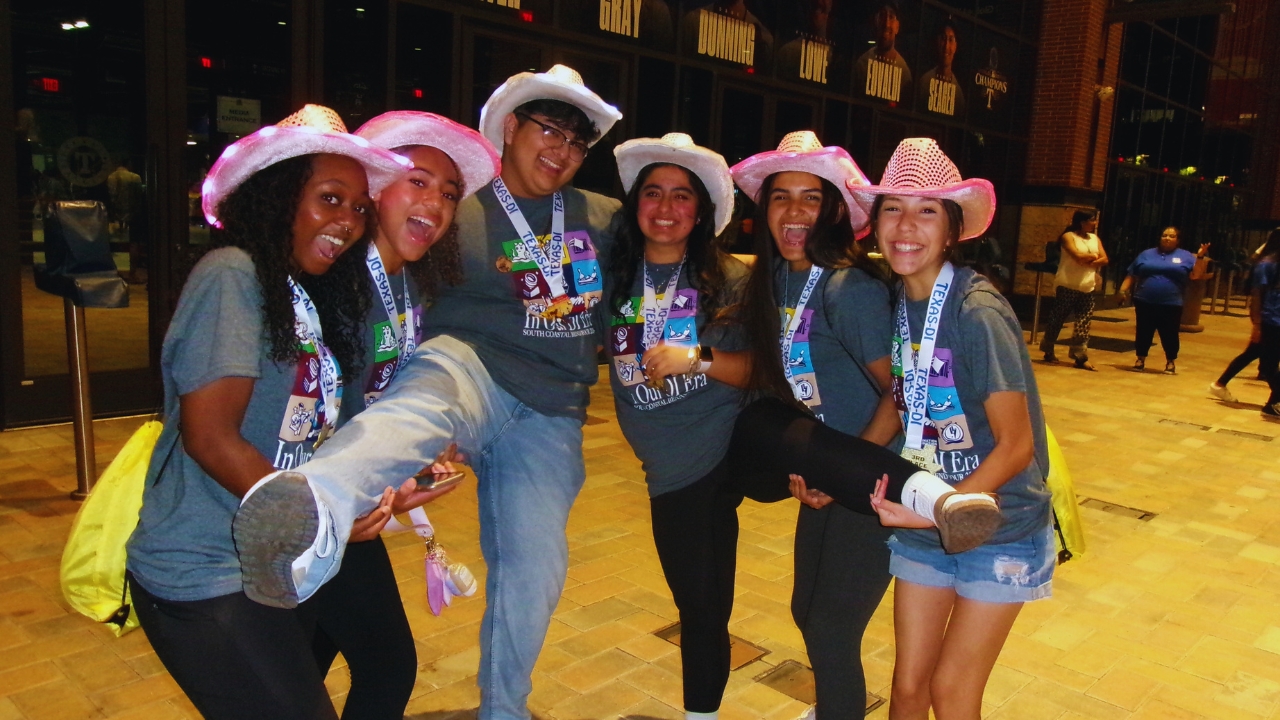How many times and how many ways have you tried to encourage your team members to project their voices for their Destination Imagination Presentation to no avail? Being able to project and articulate the voice is a cornerstone of acting. However, without prior knowledge or experience, Team Managers may struggle with ways to help their team be successful with this aspect of their solution.
Here are two highly effective drama games that will help your team members become much better at projecting their voices. (We also have a collection of 40 additional free drama games for you to use with your team, in case you want more.) Do these activities during the Instant Challenge and kill-building portions of your DI meetings for a few weeks and you will see marked improvement.
Here is the first game…
Bear in the Back Row
This is a fun, non-threatening way to help your team members realize just how far their voices much travel to be heard!
- Bring three teddy bears to your next team meeting.
- Place one near your stage area. Place one a little farther away, and place the last one as far away from your makeshift stage area as possible. Tell your team members that they will have some people in the audience who are fairly close, some people who are in the middle, and some people who are rather far away. Tell them that their goal is to make sure that the people in the back row can hear them as easily as the people right in front of them!
- Appoint one team member as the Bear Master. He/she sits with the bear who is the farthest away. He/she has two signs, “Yes” and “No.” The Bear Master is the judge of whether the onstage players are loud enough. If he/she can hear them just fine, the Bear Master holds up “Yes.” If the onstage player needs to be louder, the Bear Master holds up, “No.” The onstage player must increase his/her volume until the Bear Master changes his/her sign to “Yes.”
- Play an improv game or have your team members rehearse a short skit.
- As students perform, they must keep an eye on the Bear Master to make sure that they can be easily heard. As the rehearsal progresses, remind any students who are not projecting their voices that they must speak loudly enough to be heard by the bear in the back row.
Here is the second game…
What?
This drama activity works well because it’s fun to do, and the team members are improvising their own dialogue, which takes the focus off of being louder.
- Put two players onstage. One is a little old man who owns a candy store. The other is a customer.
- The customer enters, goes up to the counter and asks for a piece of candy. The little old man is hard of hearing, so he says “What?”
- The customer asks again, this time a little louder. The little old man says “What?” a little louder.
- This goes on three times, with both players becoming increasing louder, until finally, the old man says, “Oh, okay. Here you go.”
- Then the customer becomes the little old man, and a new player enters the candy store. Actors get to pick what candy they’d like.
- Encourage participants to always choose a new candy. No repeats.
Example of dialogue:
Customer: I’d like some peanut brittle please.
Little Old Man: What?
Customer: (a little louder) I’d like some peanut brittle please.
Little Old Man: (a little louder) What?
Customer: (loudest) I’d like some peanut brittle please!
Little Old Man: Oh, okay!
Or try this!
Hitchhiker Version-an old man stops to pick up a hitchhiker.
Old Man: Where you headed?
Hitchhiker: I’m going to Disneyland.
Old Man: (a little louder) Where you headed sonny?
Hitchhiker: (a little louder) I’m going to Disneyland.
Old Man: (loudest) Where’s that you say?
Hitchhiker: (loudest) I’m going to Disneyland!
Old Man: Oh, hop in!
Each player comes up with a new destination. Outrageous ideas allowed. (Examples: I’m late for the space shuttle. I’m going to Mars! I’m going home to give my cat a bath. I’m going to the North Pole to interview for an elf position.)
Or try this!
Disaster Version-One person walks up to an old man on the street.
Passerby: Excuse me, your house is on fire.
Old Man: What?
Passerby: (a little louder) Excuse me, your house is on fire.
Old Man: (a little louder) What?
Passerby: (loudest) Old man, your house is on fire!
Old Man: Oh! Thank you!
Each player comes up with a new disaster. Outrageous ideas allowed. (Examples: a storm is coming; your cat is choking; you’re standing on a black hole; your pants fell down.)
Ask:
- What did you notice about your own voice?
- Audience members, what did you notice about the players onstage?
- Did it feel strange to use a louder voice? Why? Why not?
- Do you get self-conscious if you speak loudly onstage? Why do you think that is?
- Have you ever been to a program where you couldn’t hear the people onstage?
- What was that like?
- Did you know that actors must be at least twice as loud as they normally speak in order for the audience to hear them? Why do you think that is?
- How can we use what we learned today in future performance challenges?
About the Author: Janea Dahl is the author and creator of Drama Notebook, the world’s largest online resource for drama teachers. She spent a year working with DI teams locally, in Portland, Oregon, and she facilitated workshops for Team Managers at the Global Finals. You can find more inspiring drama games and activities at www.dramanotebook.com






